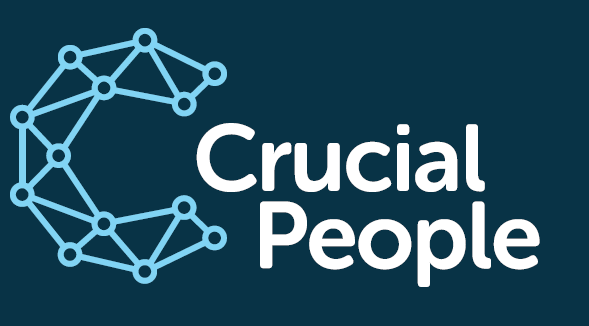The Importance of a Work-Life Balance: How to Tip the Scales in Your Favour
Work-life balance, and how you can achieve it.
Work-life balance is often seen as a myth. We’re told that we can’t have it all – that if we want to succeed in our careers, we have to sacrifice our personal lives. But this isn’t true! It is possible to have a successful career and a rich, fulfilling personal life.
The key is to find a balance that works for you. And that’s where this guide comes in. In it, we’ll explore the benefits of a work-life balance, how to tips the scales in your favor, and what you can do to achieve it.
So, if you’re ready to make the changes necessary for a happier, healthier life, keep reading!

What is a work-life balance?
Work-life balance is a concept in which individuals strive to achieve an equilibrium between their career and personal lives. It is essential for overall well-being as it ensures that energy and focus are not being overextended, leading to stress and exhaustion.
Having a balanced lifestyle requires good time management and a dedication to managing your priorities, both in the workplace and away. It means finding time for friends and family, as well as activities that bring you joy and joy. It takes practice, but finding this balance is a great way to reduce stress, stay healthy, and have more satisfaction in one’s life.
Achieving a healthy balance will help you to become more productive at work, increase your focus and satisfaction, and enhance your relationships with friends and family members. It may even help to improve academic performance and other areas of life, such as physical and emotional health.

Why is a work-life balance important?
Having a work-life balance is essential in today’s world because it can help to improve job satisfaction, positive relationships, and overall satisfaction in life. Work-life balance encourages individuals to lead healthier and happier lives, by helping them to better manage their time and prioritize the activities that matter to them.
Benefits of having a work-life balance include:
- Improved well-being: With a work-life balance, individuals have more mental and physical energy to be productive and satisfied with their lives.
- Increased job satisfaction: Feeling fulfilled and happy outside of the workplace can increase productivity in the workplace.
- Less stress: With a better understanding of how to manage stress, individuals can experience greater peace of mind and fewer worries.
- More time to take care of yourself: It’s essential to dedicate time to yourself, to stay healthy and maintain a healthy lifestyle. With a work-life balance, it is easier to fit exercise, relaxation, and other activities into your daily routine.
- Improved relationships: A work-life balance allows for more quality time to spend with family and friends, creating stronger relationships and providing greater satisfaction in life.

How to achieve a work-life balance
Having a healthy work-life balance is important for physical, emotional, and mental wellbeing. While many people struggle to find the time to prioritize their own wellbeing, it is possible to achieve a balance with the following tips:
1. Set priorities: Take time to make a list of the activities you need to prioritize and the tasks that are lower on your list. Being mindful of your priorities can help you to better manage your time and put your energy into the tasks that matter.
2. Take breaks: Breaks are essential for a healthy work-life balance. During your break, engage in activities that will help to lower your stress levels and promote relaxation, such as taking a walk, listening to music, doing yoga, or reading a book.
3. Learn to say “no”: Without overloading yourself, it is important to be able to say “no” to tasks that are not a priority or that are not beneficial for you. Having a clear idea of what activities to prioritize will make it easier to say “no” to requests that are not top priority.
4. Leverage technology: Technology can help to maximize productivity and manage time more efficiently. Leveraging apps, automation tools, calendar reminders, and other technology can make it easier to better manage activities, allowing for more time for yourself.
5. Practice self-care: Creating a list of activities that promote relaxation, happiness.

The benefits of a work-life balance
Having a healthy work-life balance is essential for overall wellbeing. It can have numerous benefits for both your physical and mental health. Here are some of the benefits of a work-life balance:
1. Improved focus: Having a better handle on your personal and professional responsibilities can make it easier for you to focus on your tasks and be more productive.
2. Improved relationships: Reducing the amount of stress associated with work can help you strengthen your relationships with the important people in your life.
3. Improved wellbeing: Taking time for yourself can improve your mental and emotional wellbeing. Doing activities that bring you joy, such as reading, listening to music, or exercising can help you recharge and reduce stress.
4. Increased productivity: Taking breaks is an important habit to create and maintain in order to stay productive and energized. When you take regular breaks, you can come back to your tasks feeling more focused and motivated to complete them.
5. Enhanced creativity: Creating a balance between work and life can also have benefits for your creative projects. Taking time to unwind and relax can help you become more creative and inspired.

Work-life balance: How to tip the scales in your favor
Now that you know the benefits of a work-life balance, the next step is figuring out how to apply them in your real life. Here are some tips that can help you balance your work and personal life:
1. Establish boundaries: Setting boundaries when it comes to your job and the hours you put into it is key. Let your boss and colleagues know when you need to take breaks and avoid working after hours when possible.
2. Incorporate leisure activities into your schedule: Don’t just focus on work activities; give yourself permission to do the things you enjoy as well. Schedule in leisure activities like going for a run or reading a book to help balance things out.
3. Find activities that promote relaxation: Make time for activities that relax you and make you happy. Doing this will help you become more productive and creative.
4. Set goals: Setting goals helps you stay on track and motivated. Setting deadlines for tasks can help you become more organized and efficient.
5. Avoid multitasking: Multitasking can be overwhelming and make it more difficult for you to focus on one task. Instead, focus on one task at a time to complete it faster and more effectively.
By following these tips, you can develop better habits and reap the benefits of a work-life balance. As the old proverb says, “All work and no play makes Jack a dull boy.” So take care of yourself.

When it comes down to it, having a good work-life balance is all about finding ways to prioritise your health and well-being.
Your health and happiness should always come first, and that means having the courage and determination to say no to work tasks in order to make time for yourself.
Having a good work-life balance is essential if you want to get ahead in your career. Learning how to find a balance between your work and personal commitments is a skill that takes time to learn, but once you develop the skill it will become easier. With practice, you’ll be able to achieve greater success in all areas of your life.
So take care of yourself and don’t be afraid to say “no” in order to make time for yourself. A work-life balance is something that everyone should strive for, and with it comes greater success, happiness, and well-being.
If you've tried to get a better work life balance and are struggling to do so, maybe it is time we had a chat.
Reach out to us confidentially on 0203 154 9422 or email info@crucial-people.com or if you wanted to dive straight in and register with us and send over a CV, you can do that HERE











